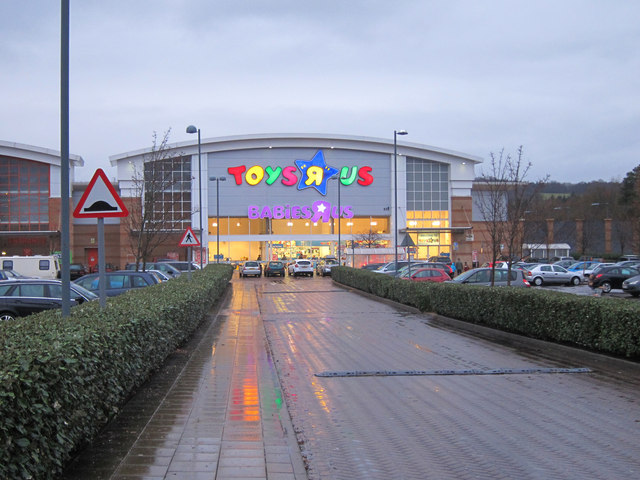The toy store giant Toys R Us Inc has hired restructuring lawyers Kirkland & Ellis to help tackle its roughly $400 million in debt due in 2018 – with one potential outcome being the much-loved retailer filing for bankruptcy protection. David Jinks, e-commerce delivery expert at ParcelHero says Toys R Us’ problems reflect the overall collapse of high street toy shops as online toy sales take a Monopoly of the market.
Toys R Us made a net loss of $164 million in the first quarter of 2017 and has ‘significantly more’ debt due in 2019, according to the US ratings agency S&P. The store is a high street favourite across the US and the UK, explains ParcelHero’s head of consumer research, Jinks.
“Toys R Us same-store sales have fallen for three consecutive quarters, and its most recent results were down 4.1 per cent. That’s because Toys R Us is in direct competition with online toy sales from the likes of Amazon; and when it comes to the toy market, Amazon isn’t playing around.”
Even Toys R Us can’t be immune from the collapse of the high street or shopping mall, he adds. “In the snakes and ladders world of retail UK toy shops have been one of the hardest-hit store types of the internet era. Local stores from the huge, award-winning Dominos in Leicester, to Junners of Elgin (116 years old at its death in 2015); and smaller stores such as Kidzone in Bromley, the Cambridge Toy Shop and Hydes in Chorley, have all closed in the last two years.”
Who now remembers Toy and Hobbys? Toy and Hobbys’ stores were brightly coloured precursors of Toys R Us, with high shelves full of Sylvanian Families and Lego Technic sets. Specialist model shops have also closed rapidly since the dawn of the internet era. Beatties’ 60 model shops closed after an ill-advised attempt to enter the well-served video games market, says Jinks. After Beatties closed down, ModelZone became the largest model chain; but it too closed its 47 stores in 2013.
“There’s little doubt the that the UK high street toy and model stores market is one Toy Story destined for an unhappy ending. The physical store’s toy market has plummeted for five of the last six years and is expected to fall again this year by 1.8 per cent. The key factor is that most toys are available more cheaply and more conveniently online.”
“Toys R Us has the scale to survive the collapse of this sector and survive as the lone high street toy store chain; but it has had a troubled online presence. Back in 2000 it did a deal with the devil itself and entered into a ten-year agreement with Amazon to exclusively supply toys for the e-commerce giant,” Jinks explains. “But by 2006 Amazon had let other toy stores onto its platform and, after an acrimonious row with Toys R Us, literally threw its toys out of the pram; the deal ended in a bitter lawsuit between the two.”
Toys R Us says it is “evaluating a range of alternatives to address our 2018 debt maturities”; so filing for bankruptcy protection is just one of several options on the table for the company. There are a number of ways Toys R Us can restructure and survive; but back in 2006 most pundits thought Amazon would be the big loser from the collapse of the Toys R Us-Amazon tie-up, he adds. “The speed of collapse of the high street toy market shows the rough and tumble of retail is far from child’s play.”







